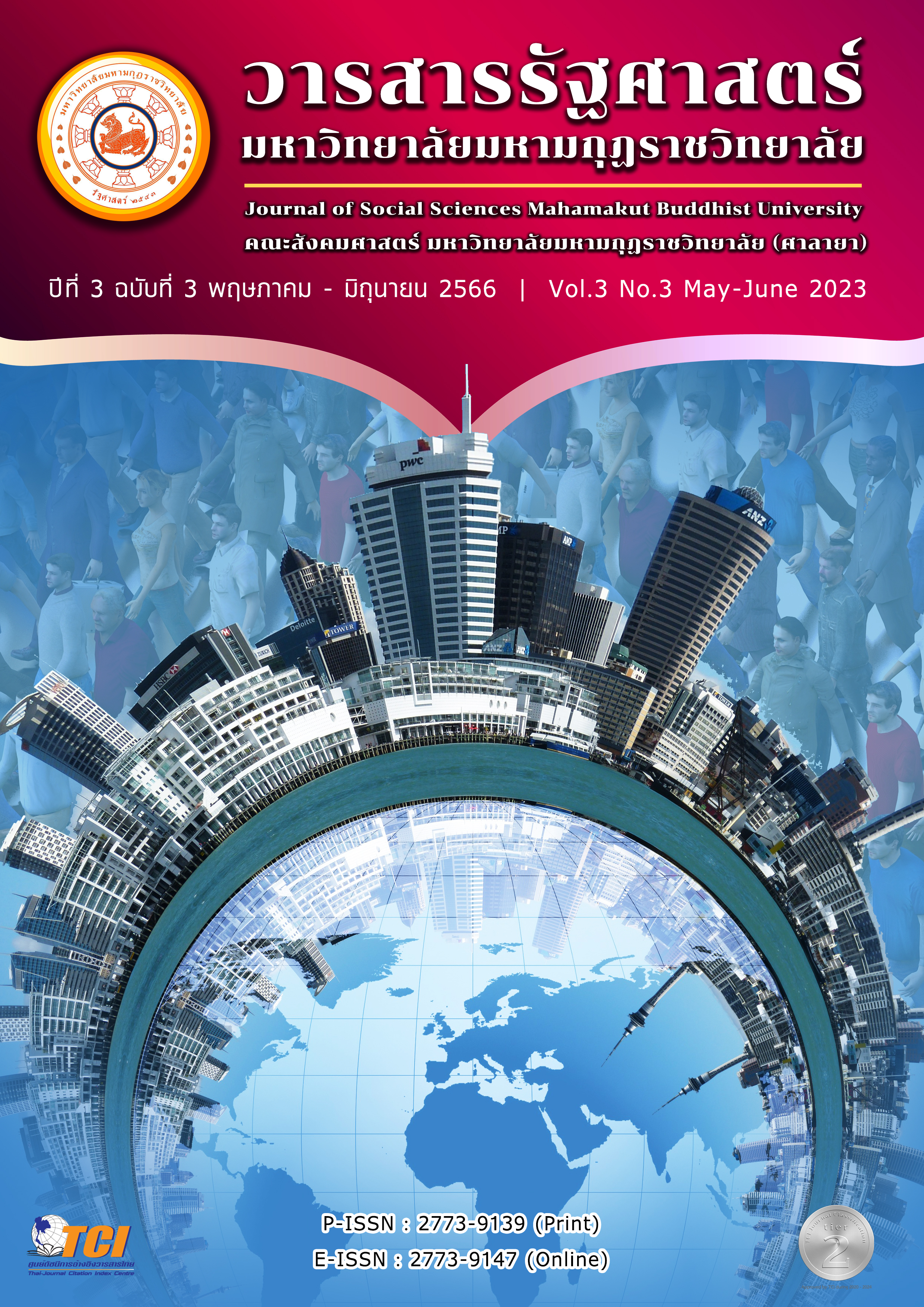THE POLITICS OF IMPLEMENTING FOOD SAFETY POLICY: A CASE STUDY OF SAI NAM PHUENG ORANGE IN MODERN-TRADE
Main Article Content
Abstract
The study found that 1) the relationship between the government sector, private sector, and civil society in implementing the policy, can be divided into 4 forms namely the relationship in which the government sector has power over the private sector, the government makes policy and the private sector acts accordingly, the relations between the public and private sectors that negotiate and beam political power, mutually beneficial relations and the relationship in which civil society checks and balances the work of the government sector and the private sector. 2) The factors affecting policy implementation. The positive factors supporting the successful implementation of the food safety policy include the nature of the policy, the clarity of the policy, the support and cooperation of various groups, the motivation of the operator to perform their duties and the attitude of the operator. The negative factors hindering the implementation of the policy include the government system, access to farmers' knowledge, and research database supporting legal development. 3) Suggestions for implementing the policy include The government sector should have a system to link food safety information and public disclosure, the public and private sectors should support relevant research for the benefit of the development of standards and laws.
Article Details

This work is licensed under a Creative Commons Attribution-NonCommercial-NoDerivatives 4.0 International License.
References
กรมควบคุมโรค. (2563). รายงานสถานการณ์โรค NCDs เบาหวาน ความดันโลหิตสูง และปัจจัยเสี่ยงที่เกี่ยวข้อง พ.ศ. 2562. กรุงเทพมหานคร: สำนักพิมพ์อักษรกราฟฟิคแอนด์ดีไซน์.
จุมพล หนิมพานิช. (2545) กลุ่มผลประโยชน์กับการเมืองไทย. (พิมพ์ครั้งที่ 1). นนทบุรี: สำนักพิมพ์มหาวิทยาลัยสุโขทัยธรรมาธิราช.
ชาย โพธิสิตา. (2550). ศาสตร์และศิลป์แห่งการวิจัยเชิงคุณภาพ. (พิมพ์ครั้งที่ 3). กรุงเทพมหานคร: บริษัท อมรินทร์พริ้นติ้งแอนด์พับลิชชิ่ง จำกัด (มหาชน).
นิศา ชูโต. (2551). การวิจัยเชิงคุณภาพ. (พิมพ์ครั้งที่ 4). กรุงเทพมหานคร: บริษัท พริ้นต์โพร จำกัด.
ประภาพร ขอไพบูลย์ และคณะ. (2551). รายงานวิจัยฉบับสมบูรณ์โครงการ สถานการณ์ ปัญหา และอุปสรรคที่เกี่ยวข้องกับความปลอดภัย คุณภาพความมั่นคงและการศึกษาทางด้านอาหารพร้อมแนวทางการแก้ไข. ใน รายงานการวิจัย. สำนักงานกองทุนสนับสนุนการวิจัย (สกว.).
มะลิ ทิพพ์ประจง และนิพนธ์ ทิพย์ศรีนิมิต. (2562). อำนาจผลประโยชน์ทางการเมือง. วารสาร มจร เพชรบุรีปริทรรศน์, 2(2), 16-32.
วรเดช จันทรศร. (2551). ทฤษฎีการนํานโยบายสาธารณะไปปฏิบัติ. กรุงเทพมหานคร: พริกหวานกราฟฟิค.
สมบัติ ธำรงธัญวงศ์. (2549). นโยบายสาธารณะ : แนวความคิด การวิเคราะห์และกระบวนการ. (พิมพ์ครั้งที่ 14). กรุงเทพมหานคร: สำนักพิมพ์เสมาธรรม.
สุภางค์ จันทวานิช. (2552). การวิเคราะห์ข้อมูลในการวิจัยเชิงคุณภาพ. (พิมพ์ครั้งที่ 9). กรุงเทพมหานคร: สำนักพิมพ์แห่งจุฬาลงกรณ์มหาวิทยาลัย.
สมาคมผู้ค้าปลีกไทย. (2565). แนะนำสมาคมผู้ค้าปลีกไทย. เรียกใช้เมื่อ 13 มกราคม 2565 จาก http://www.thairetailer.com/
World Health Organization. (2014) Global status report on non-communicable diseases 2014: World Health Organization.


